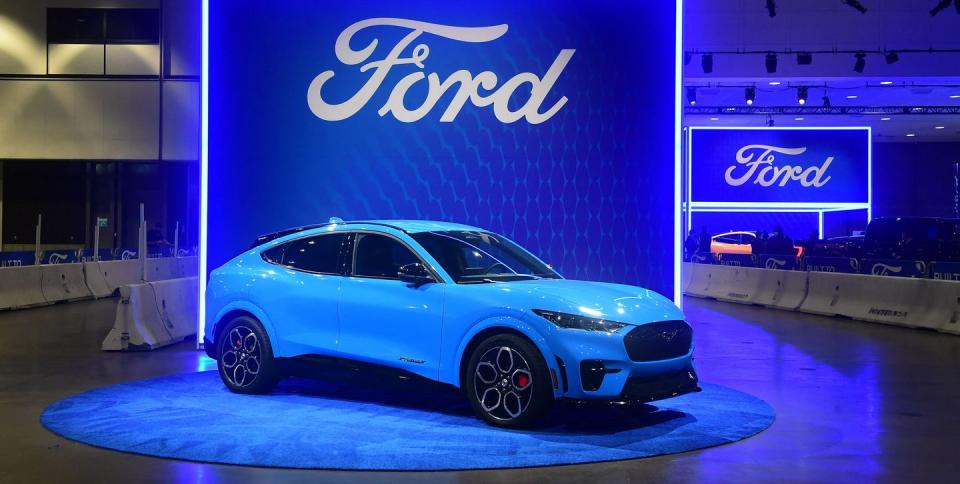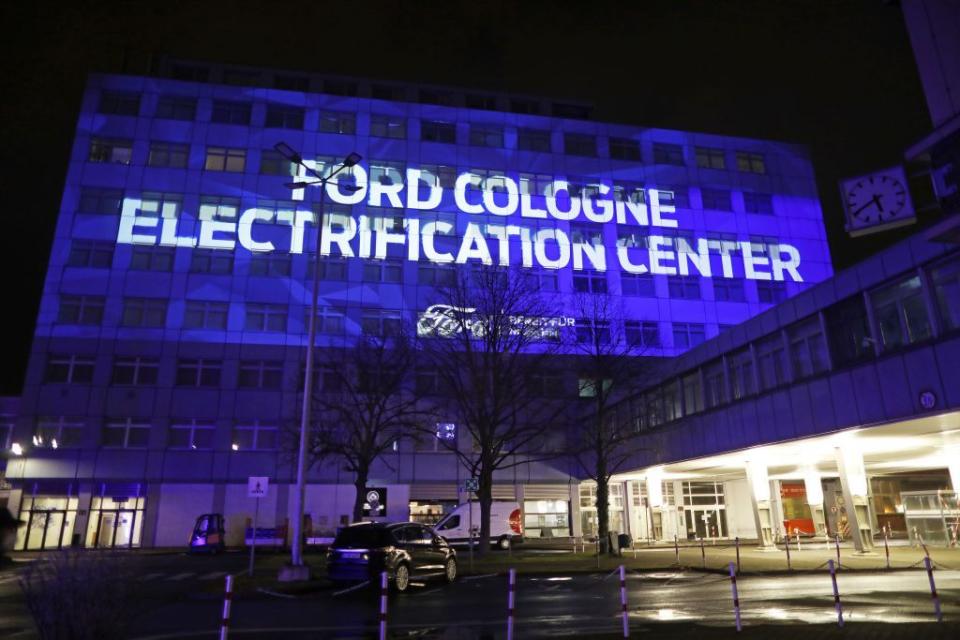Ford’s Turn to EVs Means Job Cuts in Europe

Ford reveals plans to cut 3800 jobs in Germany, UK, and other countries amid a turn to electric platforms.
The automaker plans to launch several new models in Europe by 2024, including ones we won't see here.
Ford has cited the need to create a "more competitive cost structure" as one of the reasons for the planned cuts, as well as reduced vehicle complexity.
Cologne has been synonymous with Ford's European operations for decades, with the German city also lending its name to a certain V6 engine blue oval enthusiasts know well.
But Ford's turn to electrification in Europe will also mean significant job cuts.
The automaker revealed this week that it plans to cut 3800 jobs in Europe over the course of three years, with product development and administrative employees to be hit the hardest. The cuts will represent a decrease of just over 10% in the automaker's head count on the continent.
"These are difficult decisions, not taken lightly," said Martin Sander, general manager of Ford Model e division in Europe. "We recognize the uncertainty it creates for our team, and I assure them we will be offering them our full support in the months ahead. We will engage in consultations with our social partners so we can move forward together on building a thriving future for our business in Europe."
The automaker plans to cut approximately 1700 engineering jobs in Germany along with 600 administrative positions, with another 1300 in both areas slated to be cut in the UK. In the rest of Europe the automaker will cut an additional 200 jobs.
Ford has cited costs as one of the reasons for taking this action, noting it wants to focus on "creating a leaner, more competitive cost structure."

Ford also indicated that reduced vehicle complexity and the transition to electric drivetrains are behind the planned reduction in its engineering footprint—a common refrain in the industry by this point—given the switch to electric platforms that can underpin a much wider range of vehicles.
The automaker has already made plans to phase out the compact Focus in Europe by 2025, while also putting the smaller Fiesta hatch out to pasture.
The automaker's Model e division in Europe currently offers the all-electric Mustang Mach-E, which will be joined by another medium-size crossover, as well as a "sport crossover" by 2024, according to previously released plans. The automaker also intends to offer an electric version of the Puma compact crossover by the same year. Ford's plans for commercial vehicles in Europe are even more extensive, with four battery-electric vans set to join the E-Transit already in production by 2024.
"Paving the way to a sustainably profitable future for Ford in Europe requires broad-based actions and changes in the way we develop, build, and sell Ford vehicles. This will impact the organizational structure, talent, and skills we will need in the future," Sander added.
During the past decade Ford's fortunes in Europe had already prompted attempts at course correction, with the automaker's market share in the region having receded to a level not seen in quite some time. The company had been slow to address a number of trends over the past decade, particularly the rise of compact crossovers on the continent, and had been forced to play catch up.
Do you expect US automakers will see similar job cuts in the coming years, or will the turn to electric models by automakers create new types of manufacturing jobs? Let us know your thoughts below.

 Yahoo Autos
Yahoo Autos 